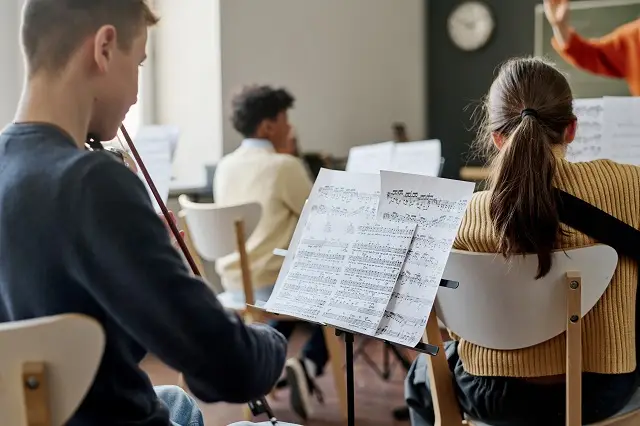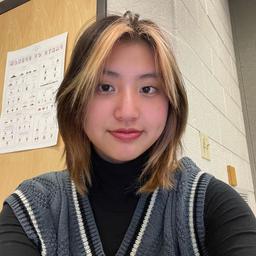Literature and languages research can take various forms, ranging from literary analysis and linguistic studies to exploring the cultural and historical contexts that shape written and spoken expressions. Scholars in these fields may study the works of a specific author or era, analyze language structures, or examine the impact of literature on society. Here are some specific examples of the types of research you could do.
Literary Analysis involves a deep examination of literary works, exploring themes, characters, and narrative techniques. You might also analyze the cultural and historical contexts that influenced a particular piece of literature.
Linguistic Studies focuses on the structure, evolution, and usage of languages. This can include syntax, phonetics, semantics, and sociolinguistics, examining how language functions in various social and cultural contexts.
Translation Studies explores the cultural nuances and challenges involved in conveying meaning across linguistic boundaries.
Cultural Studies in an interdisciplinary approach that find ths relationship between literature, language, and broader cultural phenomena. It shows how literature reflects and shapes cultural identities, values, and social norms.
Comparative Literature studies the connections and contrasts between different literary traditions and works. This may involve exploring themes, genres, or styles across diverse cultures and time periods.
Digital Humanities in Literature is an emerging field that combines literature research with digital tools and technology. Computational methods are used to analyze large datasets of literary texts, uncovering patterns, trends, and insights.
Applied Linguistics involves the practical application of linguistic theories to address real-world issues. Applied linguists may study language acquisition, language teaching methodologies, and language policy.
Language Preservation and Revitalization focuses on documenting and revitalizing endangered languages. This research involves working with communities to preserve linguistic diversity and cultural heritage, often employing collaborative and community-based research approaches.
Literature and language careers contribute significantly to humanity by preserving cultural heritage, fostering cross-cultural understanding, and advancing knowledge. For example, a linguistic anthropologist might study how language reflects cultural identity, contributing to our understanding of diverse communities. Editors ensure accurate and engaging communication, facilitating the exchange of ideas. Literary agents play a vital role in discovering and promoting new voices, enriching the literary landscape. Translators enable global access to literature, breaking down language barriers and promoting mutual understanding. Literary critics can become tastemakers, rescuing overlooked or forgotten authors from obscurity and reintroducing them back into popular culture. Language preservationists might work with indigenous communities to document endangered languages.
Work in literature and languages can occur in various settings, from universities and research institutions to publishing houses, media organizations, international organizations, and out in the field, interviewing and recording a variety of cultures.
If you find joy in words, storytelling, and the intricacies of language, you might excel in this field.
Join book clubs, participate in language clubs, and try your hand at creative writing yourself. By immersing yourself in the world of literature and languages, you not only embark on a personal journey of discovery but also contribute to a broader societal dialogue, fostering a more interconnected and empathetic world. If your school has a literary magazine or newspaper, try submitting articles or offer to become an editor. If your school doesn’t have a publication, launch your own. Getting involved in publication helps you apply what you're learning, plus it looks great on college applications.
Stay curious and open-minded. Read as much as you can, including biographies on your favorite authors. Keep a journal of interesting stories or funny quips you overhear. Learn a foreign language (or two or three) on Duolingo. Travel as much as you can and observe cultures different from your own. Here are some more useful ways you can dive into a future career in literature and languages.
1. Take a Class in High School
Most high schools offer at least a few of the courses listed below. When given a choice, opt for the AP version of literature courses because they offer a more in-depth exploration of literary analysis and critical thinking. They also prepare you for the demands of college-level classes and showcase your dedication to academic excellence. You can also look for courses at your local community college or seek out online versions.
Creative Writing is your playground for exploring imagination and honing storytelling skills. It helps you understand the mechanics of crafting compelling narratives, a crucial skill for any career in literature. It nurtures your unique voice and creative expression.
Speech and Debate sharpens your communication skills, vital for expressing ideas clearly—whether in writing or verbally. It boosts confidence, a valuable asset for literary professionals who often engage in public readings, discussions, or presentations.
Journalism or News Writing teaches precision and the art of concise storytelling. It's a fantastic way to develop research skills and an eye for detail, attributes that serve well in literature careers such as editing or non-fiction writing.
World Literature exposes you to diverse cultures and perspectives through literature. It broadens your understanding of global storytelling, essential for writers seeking to capture universal themes and engage with an international audience.
Drama or Theater Arts teaches you all about dialogue, character development, and the nuances of human interaction. These skills help you create authentic and compelling characters in your writing.
Foreign Languages open doors to different literary traditions and cultural perspectives. They enhance your linguistic flexibility and are valuable for translators or writers interested in multilingual storytelling.
Media Studies equip you with skills in analyzing various media forms, beneficial for writers navigating the evolving landscape of literature, including digital storytelling and online publishing.
2. Read a Book
As someone who loves literature and language, chances are you’re already a frequent reader. Here’s a reading list of books that we feel will serve you well in your literary and linguistic journey. Some of these books highlight the power of storytelling to convey complex themes while other nonfiction works explore the intricacies of our attempts to communicate. Each book is a portal into understanding cultures, languages, and the intricate dance between words and worlds. Enjoy the adventure!
Fiction:
The Odyssey by Homer (8th century BCE) - This ancient epic lays the foundation for narrative structure and archetypal storytelling. Its themes of heroism and adventure continue to influence literature across cultures.
The Tale of Genji by Murasaki Shikibu (11th century) - Often considered the world's first novel, this Japanese classic provides insights into courtly life, relationships, and human nature, setting a precedent for storytelling techniques.
One Thousand and One Nights (8th-14th centuries) - This collection of Middle Eastern folk tales, including stories like "Aladdin" and "Ali Baba," showcases the rich tradition of oral storytelling and its impact on literature worldwide.
Their Eyes Were Watching God by Zora Neale Hurston (1937) - Hurston's novel is a pivotal work depicting the journey of Janie Crawford toward self-discovery and empowerment. It explores themes of race, gender, and identity.
1984 by George Orwell (1949) - Orwell's dystopian masterpiece explores the impact of totalitarianism on language and thought. It's crucial for understanding how literature can reflect and critique political and social structures.
To Kill a Mockingbird by Harper Lee (1960) - This classic addresses themes of racial injustice and moral growth, offering timeless insights into society. It's a cornerstone for understanding the power of storytelling and empathy.
One Hundred Years of Solitude by Gabriel García Márquez (1967) - As a pioneer of magical realism, Márquez weaves a multigenerational tale that challenges conventional storytelling. It introduces readers to innovative narrative techniques and explores complex themes.
Nonfiction:
A Room of One's Own by Virginia Woolf (1929) - Woolf's seminal essay explores the challenges women face in the literary world, advocating for women to have both financial independence and a literal room of their own to write. It remains a foundational text for feminist literary criticism.
On Language: Chomsky's Classic Works by Noam Chomsky (1979) - This collection compiles Chomsky's influential essays on linguistics, introducing concepts like universal grammar. It's a cornerstone for anyone interested in the theoretical foundations of language.
Mother Tongue: The Story of the English Language by Bill Bryson (1990) - Bryson takes a light-hearted yet informative approach to the history of the English language. It's a great starting point for understanding language evolution and the intricacies of English.
Talking Back, Talking Black: Truths About America's Lingua Franca by John McWhorter (2017) - McWhorter's exploration of African American English challenges stereotypes and sheds light on the linguistic richness of this dialect. Writers interested in sociolinguistics and the intersections of language and identity will find this book compelling.
Because Internet: Understanding the New Rules of Language by Gretchen McCulloch (2019) - McCulloch delves into the evolving landscape of internet language, exploring how online communication shapes and reflects linguistic trends. It's a contemporary look at the intersection of technology and language.
If you love great storytelling, you should also check out literary journals such as The Paris Review, Granta, or The New Yorker for a curated selection of new and noteworthy works. Book reviews from sources like The New York Times Book Review or literary awards like the Booker Prize can help you stay informed about acclaimed contemporary works. Tune into podcasts like "The New Yorker: Fiction" or "The Literary Review" to hear interviews with authors and analyses of notable works. And you can also join book clubs or online forums dedicated to literature where members discuss recent releases, share recommendations, and talk about literary trends.
3. Extracurricular Study
Remember that quality and the depth of your involvement is often more important than quantity when it comes to extracurricular activities. Choose activities that genuinely interest you and take a deep dive into them.
Literary Magazine - If your school has a literary magazine, join the editorial team. Beyond submitting your own work, actively participate in selecting pieces for publication. This provides insights into the editorial process, improves your critical reading skills, and exposes you to various writing styles. It's a practical introduction to the world of publishing and editing.
Book Club - Infuse a traditional book club with creativity. Each month, choose books from different cultures or genres, and pair them with related activities. For instance, if the book features a specific cuisine, have a potluck where members bring dishes related to the story. This adds a multisensory dimension to the reading experience, fostering cultural understanding and enhancing descriptive writing skills.
Debate or Speech Club - Engage in debate around literature and language-related topics. Discuss the impact of language in political speeches. Analyze literary themes. Debate language policy. All of these activities broaden your analytical and argumentative skills. It's also a unique way to blend language study with public speaking.
Foreign Student Exchange Program - Collaborate with language teachers to establish a language exchange program with students from different countries. This not only strengthens your language proficiency but also promotes cross-cultural communication and understanding.
Storytelling and Improv Workshop - Join or start a storytelling and improv workshop where participants create and perform spontaneous stories. This fosters creativity, adaptability, and quick thinking. It's a playful approach to narrative construction, enhancing your storytelling abilities and encouraging collaboration with peers.
International Film Club - If your school has a film club, propose an international film focus. Explore movies from different countries, discussing cultural nuances, language use, and storytelling techniques. Analyzing films expands your understanding of visual storytelling and provides a global perspective on narrative structures.
Linguistic Coding Workshop - Combine your interest in languages with coding by participating in a linguistic coding workshop. Explore natural language processing or computational linguistics, where you'll analyze and manipulate language data. This intersection of technology and language equips you with valuable skills for fields like data science, machine translation, or artificial intelligence.
Pursuing an independent research project in literature is often more accessible for high school students compared to certain STEM fields like chemistry or medicine due to the nature of the discipline. Whereas research in STEM fields might involve costly lab equipment and safety protocols, literature and languages research primarily relies on readily available texts. Most of the resources you would need are accessible in online databases and public domain works.
Explore local libraries or university departments; they often welcome eager students for assistance on research projects. Online platforms like Project MUSE or JSTOR offer academic articles, providing a wealth of information for self-directed research. Additionally, consider participating in essay contests or submitting your work to literary magazines; it's a chance to showcase your analytical skills and creative writing.
Here are some more specific ways to find or create research opportunities.
Find research programs close to home
We’ll go into summer literature and language programs in more depth in the next section, but if you want to find all types of established literature or languages research opportunities close to home, our High School Student Research Opportunities Database is an excellent resource. Click on your state, then search based on your location, institution, event type (in-person or virtual), and tuition (paid or free).
Work with a professor
If you have a clear idea of your passions, you can reach out to professors in your field to see if they are open to collaborating with you. Refer to our Guide to Cold-Emailing Professors (written by Polygence literature research mentor Daniel Hazard, a Ph.D. candidate at Princeton University).
Engage in your own research project
Students with initiative and focus can opt to tackle research independently. Carly Taylor, a Stanford University senior who has completed several research projects this way, outlined a guide about how to write a self-guided research paper.
Enter a competition
Competition deadlines provide a very helpful structure to keep your literature or languages research moving forward. For some ideas, check out these writing top 20 writing contests. Some of these contests offer big cash awards (up to $40,000!) and/or scholarships. Another benefit to entering a contest is meeting other students, teachers, and even the authors you love most.
Here are some top picks for summer literature and languages research programs. We chose them based on their affordability, name recognition, social opportunities, and academic rigor.
1. Summer Arts Camp
Hosting Institution: Interlochen Center for the ArtsCost: $1,750-$9,980 USD
Format: In-person (Interlochen, MI)
Application deadline: Mid January
Students choose to spend from 1 week or 6 at Interlochen where they can enjoy cabin games and explore the outdoors when they are not practicing, performing, and making art. All of the programs within Interlochen encourage the creation of original work as final projects. Areas of interest include Dance, Writing, Music, Theatre, and several others.
2. Creative Journalism Summer Program
Hosting Institution: Columbia UniversityCost: $2,825-$12,449 USD
Format: In-person (New York, NY)
Application deadline: Early March
Designed for high school students hoping to quickly understand the basics of reporting. Students can choose from a one-week or three-week program incorporating teachings from renowned journalists and Columbia writing professors. Students learn reporting and interviewing skills through writing assignments such as profiles, op-eds, features, and audio pieces.
3. Iowa Young Writers' Studio
Hosting Institution: University of IowaCost: $575-$2,500 USD
Format: Online or In-Person (Iowa City, IA)
Application deadline: Mid May
Students chose a single core course to study from Poetry, Fiction, Creative Writing (a survey that includes poetry, fiction, and personal essay), TV Writing, or Playwriting. Classes of 10 or fewer students allow deep dives. Each course includes both a seminar and a workshop component. During the seminar, students are encouraged to read as writers. And for the workshop component, teachers and students collaborate such that each student is encouraged to give thoughtful, thorough commentary to their peers in exchange for the same.
Check our High School Student Research Opportunities Database for more ideas.
1. Benjamin Lawless Internship
Hosting institution: Office of the Librarian
Compensation: Paid volunteer
Format: Online and in-person (Washington, DC)
Application deadline: Late November
If you're interested in public programming, research and writing, exhibition development, and outreach, this four-week internship offers a unique experience. Your research will help develop content to support the new participatory learning space for youth and families in the Library of Congress.
2. Washington Performing Arts Internship
Hosting institution: Washington Performing Arts
Compensation: Unpaid volunteer
Format: In-person (Washington, DC)
Application deadline: Ongoing
You can tailor this performing arts internship to suit your schedule and interests. Although the position is unpaid, you will be given the opportunity to attend many Washington Performing Arts performances for free. You must have previous office experience, strong organizational skills, effective writing and communication skills, computer literacy, and the ability to learn quickly and to take initiative. Hours are flexible, but note that this is a spring program, not summer, and you must be a newly graduated high school student.
Be sure to read our full post on Internships in English Internships for High School Students for all of our suggestions!
When choosing a topic for your literature and language research paper, write a list of texts that resonate with you. Consider exploring linguistic elements like language evolution, narrative structure, or even bilingualism in literature. Delve into questions like, "How does language shape identity in the novel?" or "What role does code-switching play in storytelling?" Chat with your teacher or a language expert to refine your ideas.
Polygence Scholars Are Also Passionate About
Here are some ideas from some of our Polygence mentors to get you inspired.
What difference does translation make?
Is literary translation still valuable today? Because we live in a time of instant translation, it could seem irrelevant but let’s put this to the test! Choose a text that you would like to analyze and compare both instant and published translations. Compare the two to determine if the human interpretation takes the lead!
Idea by English and literature mentor Hector
At the crossroads of literature and anthropology
Visit a museum and choose any collection that stands out to you the most! Once chosen, research the history behind the collection. When was the time period? What is the story behind the collection? Who was involved? You can add your research to the museum’s archives, write a paper, or whatever else you’d like to do using your findings!
Idea by English and literature mentor Will
Who's the real hero of the Odyssey?
For this project, you will start by reading Homer's Odyssey before taking a deeper dive into your findings of that specific time period. Compare the definition of what a “hero” is today versus what a “hero” was in the eyes of the Ancient Greeks. Re-evaluate the gods within the story and decide for yourself who the actual hero is!
Idea by English and literature mentor Sydnie
Check out even more project ideas on the Literature Research and Passion Project Ideas for High School Students post.
Brainstorm your own project ideas based on what literature or linguistic issue interests you. If you want support, the Pathfinders program gives you the chance to meet with three different mentors who specialize in your field of interest. You can discuss your project ideas with them, and they can help you grow your idea, discover new research techniques, and point the way to great resources and alternative options.
For a sense of how varied the subjects for literature and languages projects can be, take a look at topics covered by some of our Polygence Scholars.
Pranav wanted to bridge the communication gap between verbal and non-verbal communities. To this end, he created a Transformer model that can understand American Sign Language and translate it to English. He hopes this model can be used in classrooms to help people make friends and communicate more easily. Check out the full research paper.
Hannah was interested in the traditional roles of men and women in and out of wartime and the duality of religion and politics.To explore these themes further, she wrote a 40-minute five-act play entitled “A Girl In Haarlem,” set in the Dutch city of Haarlem in the midst of the 80 Years’ War of Independence. You can read the script here.
Nivedita hypothesized that literature serves as a simulation of reality, providing readers with tools like empathy and Theory of Mind (ToM) to navigate social interactions. To prove this, the paper analyzes cognitive processes such as mirror neurons and mental models, showcasing their role in readers' engagement with characters. The conclusion highlights literature's reciprocal impact, strengthening readers' ToM as they analyze characters while gaining novel perspectives crucial for real-world interactions. You can read the paper here.
Start by choosing a focused topic that genuinely intrigues you—something you're eager to explore in-depth and start to read as much as you can on your subject. Take detailed notes, citing your sources carefully. As you read articles or books to support your thesis, you should skim their introduction and conclusion first to make sure they’re worth reading all the way through. As you do this research, you may also want to start forming an outline of your research paper to give your research more direction.
Create a clear thesis statement that encapsulates the central argument or question your paper will address. You can always come up with a preliminary or working thesis and then refine it or completely revise it as you learn more. Try to go beyond the summary of existing arguments and strive for fresh insight in your analysis. Explore the nuances of characters, themes, and language choices. Edit and proofread meticulously—clear, concise writing enhances the impact of your analysis.
Most literature or languages research papers follow a standard structure: introduction (including a thesis statement), body paragraphs focusing on specific aspects of the analysis, and a conclusion summarizing key findings. Each paragraph explores a unique facet of the argument, supported by textual evidence and analysis. The paper typically adheres to a specific citation style (e.g., MLA or APA), and the language is clear and concise. A strong literature paper delves deep into the nuances of the text, offering critical insights and interpretations while maintaining a coherent and well-organized structure.
Lastly, embrace feedback. Share drafts with peers or teachers, welcoming constructive criticism to refine your work. An outstanding literature research paper demonstrates not only a mastery of literary concepts but also your enthusiasm for exploring the intricate layers of storytelling. Enjoy the process, and let your passion for literature shine through in every word!
If you need more general guidance overall, here’s a great article on how to write a good research paper.
If you have some ideas and want to conduct literature and language research with the guidance of an experienced mentor, apply to be a part of our flagship mentorship program.
Once you’ve researched, written, and perfected your research paper, it’s time to introduce it to the world. You could enter it into a contest, as mentioned earlier in this post, create a podcast, do a YouTube video about it, or publish it in a journal. Here are some publications you could look into.
1. Curieux Academic Journal
Curieux Academic Journal is a non-profit run by students and was founded in 2017 to publish outstanding research by high school and middle school students. Curieux publishes one issue per month (twelve per year), so there are many opportunities to get your research published.
Cost: $185-215
Deadline: Rolling
Subject area: Engineering, Natural Science, Mathematics, and Humanities
Type of research: Including but not limited to research papers, review articles, and humanity pieces.
2. Concord Review
The Concord Review is a quarterly journal that publishes exceptional essays written by high school students. The journal has been around since 1987 and has a great reputation, with many student winners going to great universities. Further, if your paper is published, your essays will be sent to subscribers and teachers all around the world, which is an incredible achievement.
Papers submitted tend to be around 8,000 words, so there is definitely a lot of writing involved, and the Concord Review themselves say that they are very selective, publishing only about 5% of the essays they receive.
We’ve posted our complete guide on publishing in the Concord Review here.
Cost: $70 to Submit and $200 Publication Cost (if accepted)
Deadline: Fixed Deadlines in Feb 1 (Summer Issue), May 1 (Fall), August 1 (Winter), and November 1 (Spring)
Subject area: History / Humanities
Type of research: All types of academic articles
3. Polyglossia
Polyglossia is an international journal that showcases the research of high school students in the fields of literature and linguistics. It provides a platform for students to share their insights and analyses of literary works or language-related topics. The journal accepts a variety of academic articles, including essays and research papers. Polyglossia is committed to fostering the scholarly endeavors of young researchers in the realm of literature and languages. Keep an eye out for their calls for submission on Facebook.
Cost to Submit: Free
Submission Deadline: Rolling
Subject Area: Literature and Linguistics
Type of Submission Accepted: Academic articles, essays, and research papers.
4. Linguist Magazine
Linguist is an online journal that focuses on publishing articles in the field of linguistics. It provides a platform for authors interested in language structure, sociolinguistics, and language acquisition to share their findings. Linguist encourages submissions that demonstrate a strong grasp of linguistic concepts and offer valuable contributions to the study of languages. Although not specifically for high school students, there are no eligibility requirements that bar you from submitting and possibly being accepted.
Cost to Submit: Free
Submission Deadline: Rolling
Subject Area: Linguistics
Type of Submission Accepted: Articles.
Looking for a more competitive approach to showcasing your writing? Check out our article on the 20 Best Writing Competitions for High School Students





















































